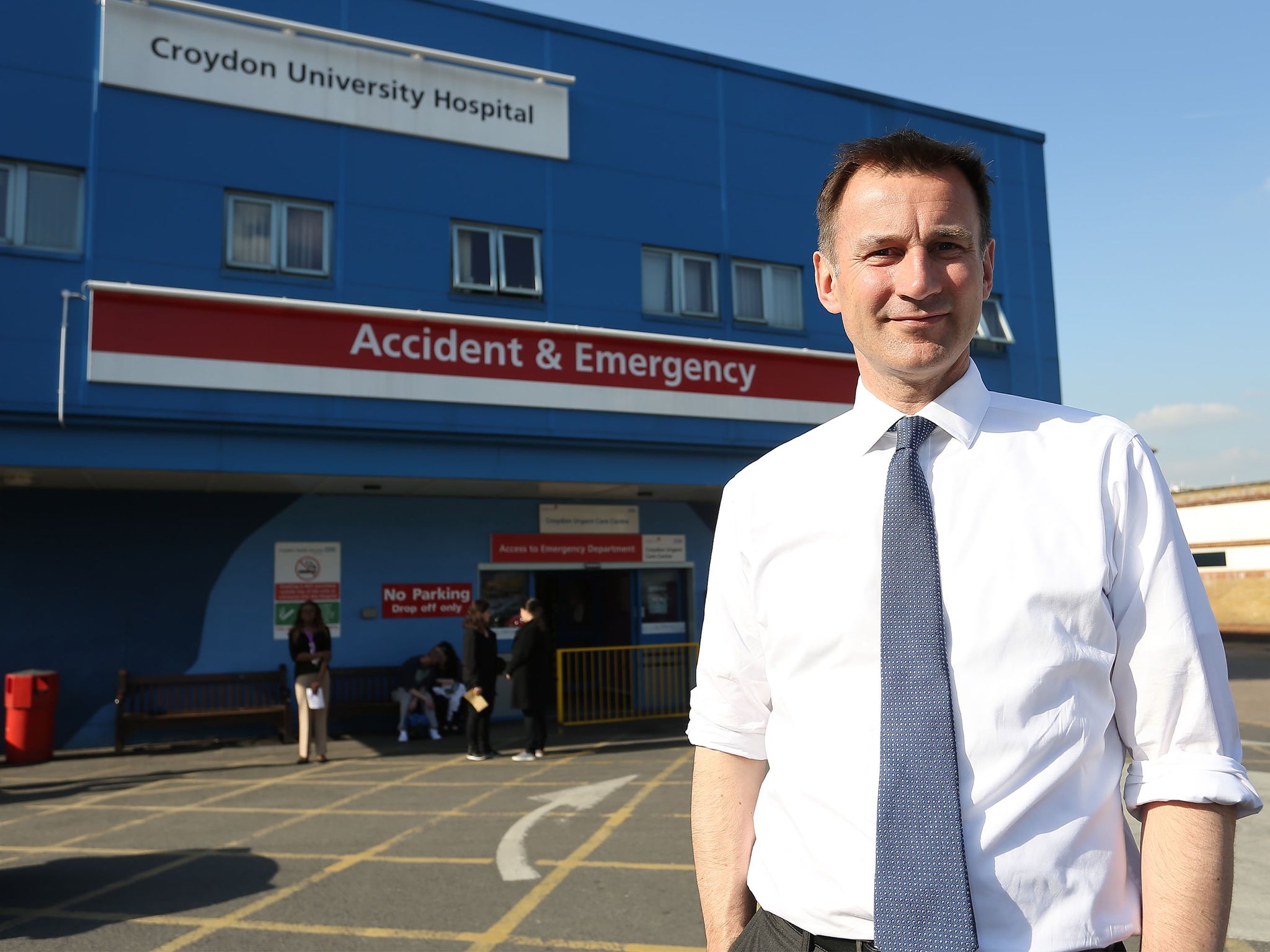Junior doctors urge Jeremy Hunt to guarantee medics will not see pay cut
Chair of the BMA’s junior doctors' committee writes to Health Secretary seeking 'concrete assurances'

Your support helps us to tell the story
From reproductive rights to climate change to Big Tech, The Independent is on the ground when the story is developing. Whether it's investigating the financials of Elon Musk's pro-Trump PAC or producing our latest documentary, 'The A Word', which shines a light on the American women fighting for reproductive rights, we know how important it is to parse out the facts from the messaging.
At such a critical moment in US history, we need reporters on the ground. Your donation allows us to keep sending journalists to speak to both sides of the story.
The Independent is trusted by Americans across the entire political spectrum. And unlike many other quality news outlets, we choose not to lock Americans out of our reporting and analysis with paywalls. We believe quality journalism should be available to everyone, paid for by those who can afford it.
Your support makes all the difference.Junior doctors have called on Jeremy Hunt to guarantee not a single medic will see their pay cut as a result of controversial contract changes that have driven the profession to the brink of strike action.
Dr Johann Malawana, chair of the British Medical Association’s junior doctors committee, has written to the Health Secretary outlining “concrete assurances” required for the doctors’ union to return to the negotiating table.
Mr Hunt wrote to the BMA last week in an attempt to break the impasse over the proposed new contracts, which would change the definition of out-of-hours work. His letter contained assurances that average pay for junior doctors would not reduce.
In his reply, Dr Malawana welcomed an “absolute guarantee” from Mr Hunt that doctors will not be forced to work unsafe hours. However, he criticised the Government’s failure to alter plans to reclassify Saturdays and weekday evenings as ordinary working hours with no extra pay.
“You state that the average pay for juniors will not reduce, and the great majority of junior doctors will be at least ‘as well paid’ as they are now – which, by definition, means that some junior doctors will receive a pay cut,” Dr Malawana writes. “You have told the press that you ‘don’t want to see any junior doctor have their pay cut’. Can we clarify that this represents your guarantee that this will not happen?”
A Department of Health spokesperson said: “We have already given key guarantees including protecting the overall pay-bill, ensuring the great majority of junior doctors are at least as well paid as they would be now, and reducing the number of hours worked.”
The BMA has seen a surge in membership since its junior doctor committee chose to ballot for strike action. The union is urging members to update their details by 23 October to be eligible for the ballot.
Join our commenting forum
Join thought-provoking conversations, follow other Independent readers and see their replies
Comments